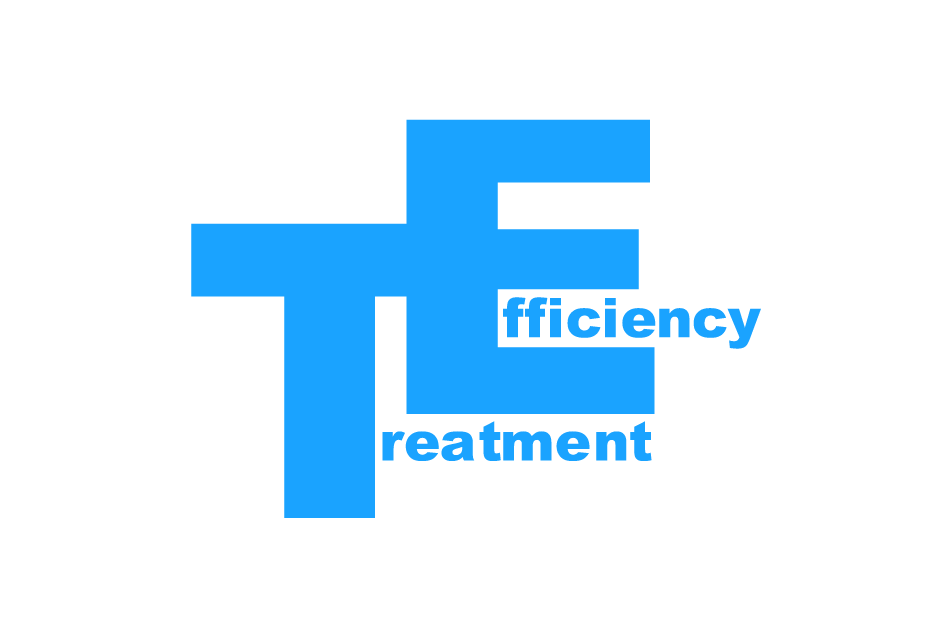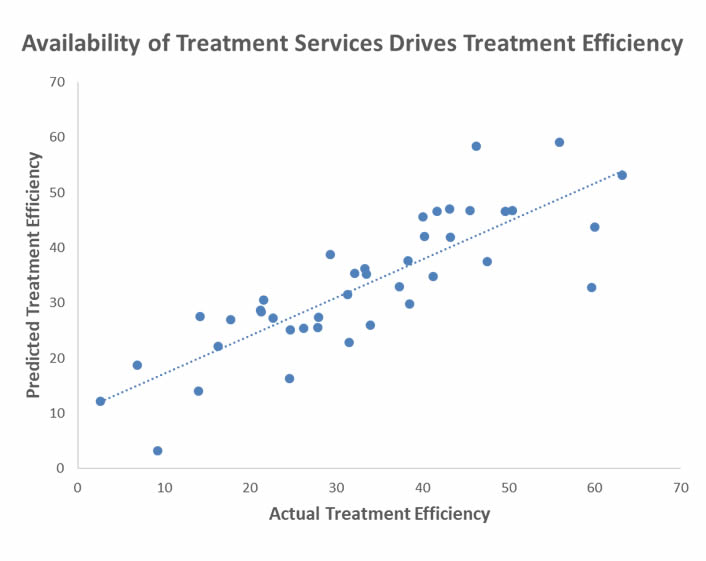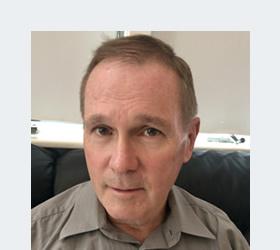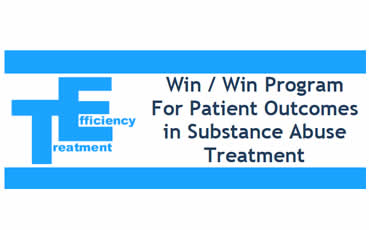We observe that the nature of treatment for substance abuse varies considerably among the 12,000+ US treatment centers. Analysis of "how much we are spending" is a good initial metric, but of even more importance is ensuring that the expenditure is on the right treatment services to maximize the likelihood of completing the treatment program and thereby reducing the costs incurred by repeated treatments. This observation about the variety of billable treatment services offered raises the issue of efficiency, the best use of resources in treating substance abuse.

We introduce the metric "treatment efficiency" as the proportion of substance abusers who start a treatment program and complete the program rather than:
(a) quitting against medical advice or
(b) stopping treatment to try another approach in mid-stream or
(c) being expelled by a treatment center or
(d) another reason.
Clearly, inpatient treatment does not guarantee that a substance abuser's problem will be solved.
However, if abusers complete their treatment, they have much greater odds of recovery. This prompts the
question "What works best?" for increasing treatment efficiency.
Which specific treatment services result in a higher proportion of abusers completing their treatment programs?
Using our database of 1.2 million annual patient discharges from treatment centers, we can provide answers to the question "what treatment services drive treatment efficiency" by state, by county groupings, by substance abused, by type of treatment and more.
Read moreOur client projects typically involve a series of stages. In the initial stage, we assist the client team to fully articulate the strategic issues at hand, the financial imperatives and the relevant business metrics that underpin the project goals. A next stage would involve the marshalling of a broad set of stakeholders and owners of business knowledge and data resources who can contributes assets for the foundation of the analytic stages of the project. The analytic framework is outlined to identify possible outcomes to strategic questions and suggest novel approaches for consideration. Next comes the heavy-lifting of data manipulation, database construction, analyses, modeling and results reporting. Finally, workshops communicate the project learning to help ensure organizational buy-in of the project deliverables.
Here are a few examples of how we might analytically approach a strategic question. Click on the example to enlarge the graph.



We engage with clients to elicit their perspectives about the strategic issues on their agenda with the goal of identifying how they can most benefit from our expertise. This process helps define how our tools and analyses of our comprehensive databases will create insights that are the key to successful projects.
Data are not information. After framing the strategic questions, we focus on exploiting our proprietary databases of 1.2 million annual treatment outcomes in conjunction with client-specific data to develop an appropriate analytic plan. We apply a diverse range of analytical methods to develop actionable answers to client questions.
To answer your strategic questions, we bring over 80 years of experience in finding solutions for clients. Every client is pursuing different business goals, with different financial milestones and different opportunities. Our contribution to the client team is to weave together a customized, robust methodological and analytical framework within that client-specific context. In our experience, cookie-cutter approaches do not accommodate this client-specific context and do not really satisfy clients.

Date: October 2, 2018
The US is burdened with an estimated $64 billion annually in substance abuse treatment costs.
Substance abuse treatment programs can lead to better patient outcomes if abusers complete their
treatment programs. Alarmingly, the percentage of patients who complete their treatment programs
is low. There is a better way to allocate resources.
New York City area
Phone: (203) 253-2403
david.glenn@TreatmentEfficiency.com
Phone: (650) 996-3101
keith.sentis@TreatmentEfficiency.com